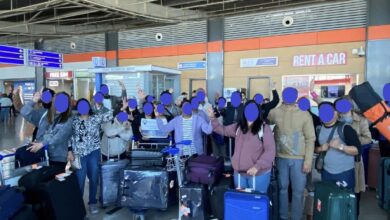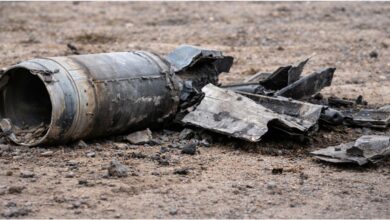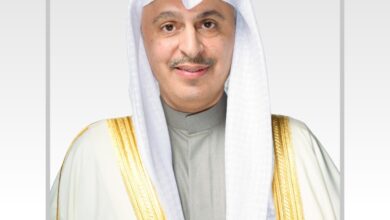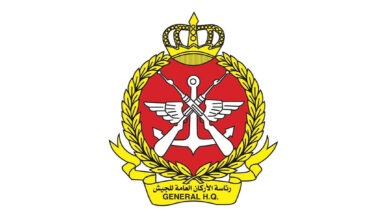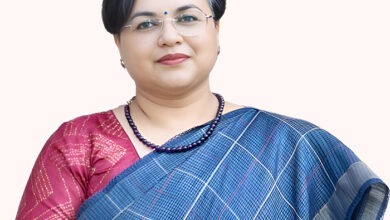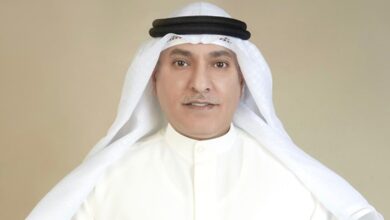Ministry of Interior announces family house project for inmates
The project will not be implemented until after obtaining approval from the Ministry of Health, which is working to determine the health procedures and protocols required for such an initiative.

• The development of correctional institutions includes providing an appropriate educational environment that helps develop the skills of inmates and equips them with knowledge to integrate into society after serving their sentences, said Brigadier General Fahd Al-Obaid, Assistant Undersecretary of the Ministry of Interior for Correctional Institutions and Enforcement of Sentences.
Brigadier General Fahd Al-Obaid, Assistant Undersecretary of the Ministry of Interior for Correctional Institutions and Enforcement of Sentences, announced that the ministry is set to implement the legal seclusion project for prisoners, known as the family house. This initiative is progressing with the site prepared within the prison complex, in collaboration with the National Bureau for Human Rights and the Human Construction Society.
Al-Obaid added, in a press statement on the sidelines of the opening of the new school year in the educational classes of the correctional institutions in the central prison and the women’s prison, as part of the national initiative ‘Sandhom,’ that the project to block communications from the prison complex is still under study by various security and governmental agencies.
He indicated that the project will not be implemented until after obtaining approval from the Ministry of Health, which is working to determine the health procedures and protocols required for such an initiative.
He explained that the classrooms include both secondary and intermediate stages for women and men, in cooperation with the Ministries of Education and Endowments, as well as with the participation of the National Bureau for Human Rights and the Human Construction and Nama Charity Associations.

Al-Obaid noted that the academic season for teaching Sharia sciences for the 2024/2025 academic year has begun to enhance the religious and cultural aspects of the inmates.
Al-Obaid pointed out that the development of correctional institutions includes providing an appropriate educational environment that helps develop the skills of inmates and equips them with knowledge to integrate into society after serving their sentences. This approach enhances their chances of success in the future and reduces the rate of recidivism.
Forty female inmates registered in education classes
For her part, Maryam Al-Anzi, Acting Undersecretary of the Ministry of Education for Educational Development and Student Activities, stated that there are forty female inmates registered in education classes for the current semester.
Al-Anzi added that all inmates, both male and female, will receive educational certificates issued by adult education centers without any discrimination or indication that the certificate holder was a student in the educational classes of the correctional institutions. She emphasized that the right to education is an acquired right for inmates who wish to study, irrespective of the judicial ruling issued against them.
She noted that during the semester and end-of-year exams, the Ministry of Education forms special examination committees in coordination with the General Administration of Correctional Institutions to assess the students among the male and female inmates. They are provided with all necessary resources for studying and review before the exams. Al-Anzi remarked that the certificates granted to inmates will aid them in their new lives after their release from prison, helping them lead dignified lives.
Rehabilitating, restoring, and establishing sites within correctional institutions
For her part, Engineer Fatima Al-Salman, Assistant Director General of the Human Construction Society, stated that the strategic partnership between the Ministry of Interior, the National Bureau for Human Rights, and the Human Construction Society for Social Development is based on two main axes. The first is the national initiative ‘Sandhom,’ aimed at rehabilitating, restoring, and establishing sites within correctional institutions, such as classrooms, nurseries, workshops, halls, and other facilities.
She noted that the second axis involves inviting public benefit associations and civil society organizations, through the National Bureau for Human Rights, to present projects surveyed by the association, which total 41 projects, so that each association or union undertakes to complete one of these initiatives.

Inmates achieve remarkable success in high school examinations
Falah Al-Mutairi, Director of the Adult Education Administration Center in the Farwaniya Educational District, stated that all individuals registered for classes in correctional institutions are affiliated with the Adult Education Center in the Farwaniya Educational District.
Al-Mutairi added that the previous academic year witnessed the success of a significant number of inmates in the high school exams and transfer exams, achieving very high percentages that qualify them to continue their education after their release.







